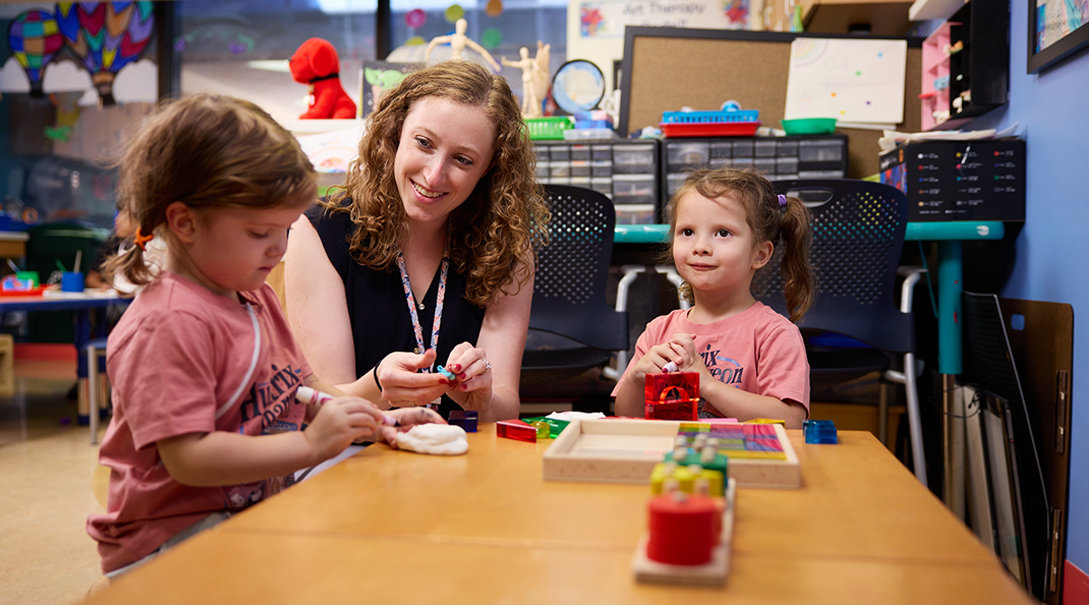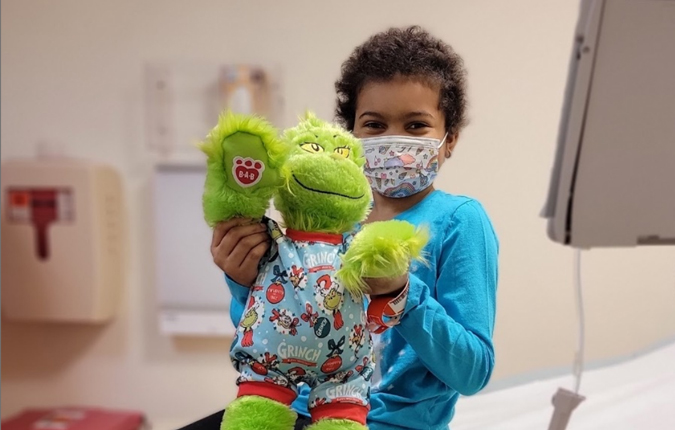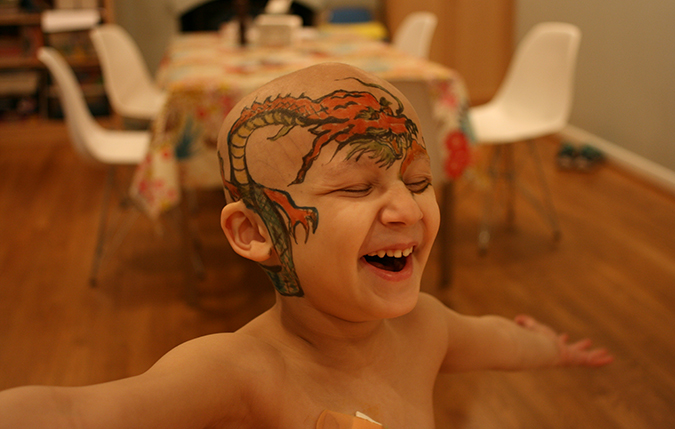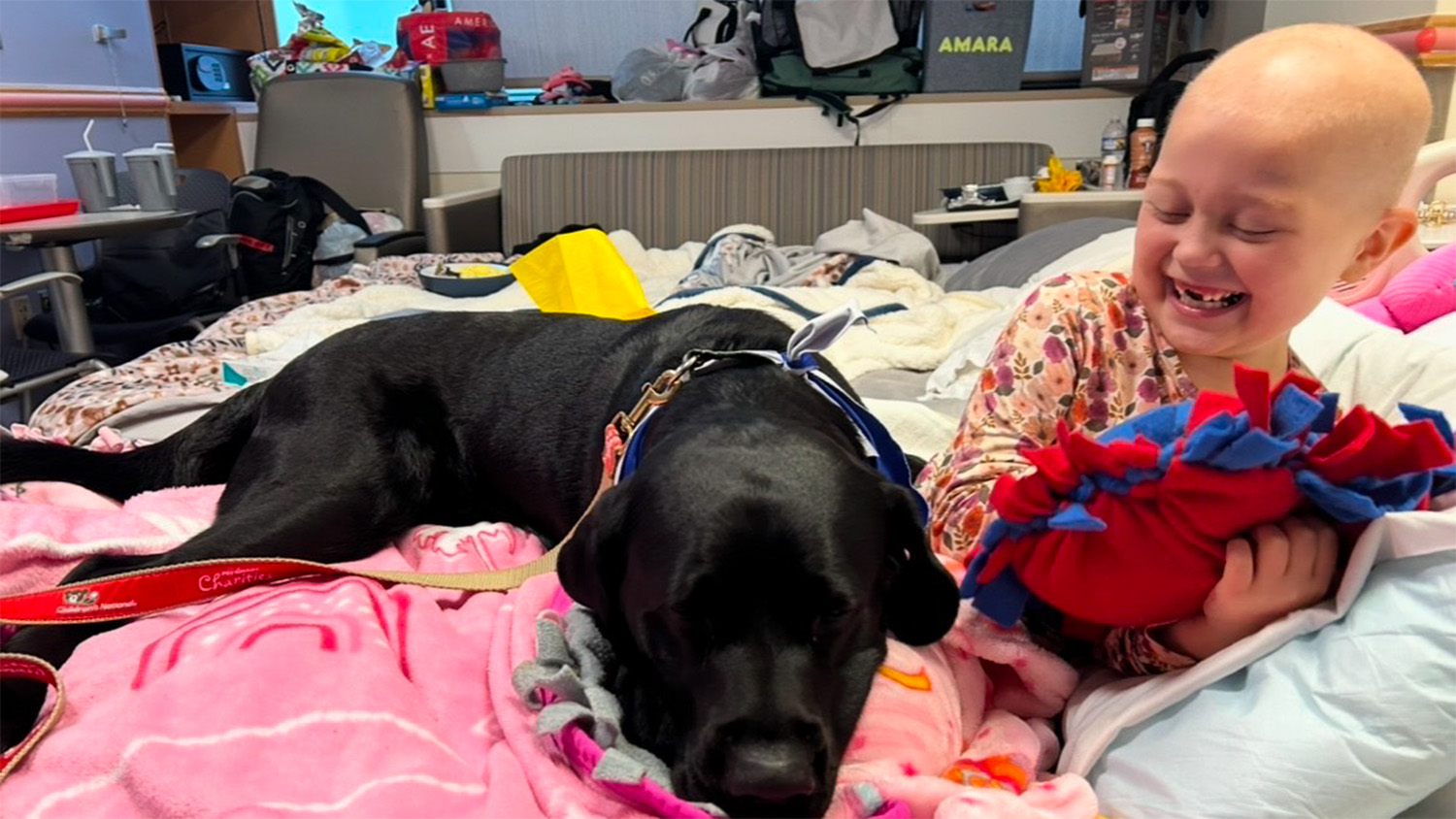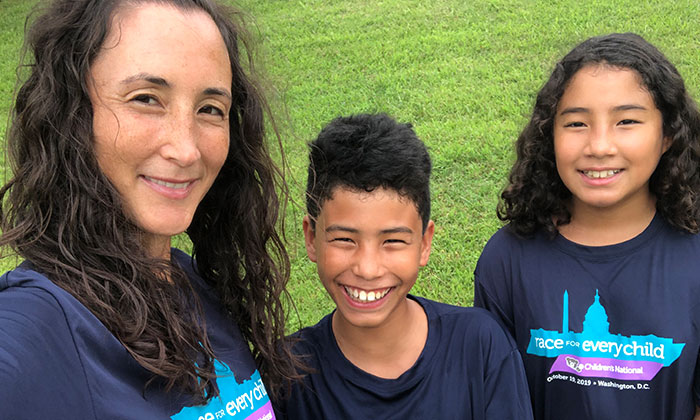Treatment
Pediatric Chemotherapy
Chemotherapy (chemo) is the use of medicines to treat cancer or kill cancer cells. Chemotherapy has been used for many years. It’s one of the most common treatments for cancer. The groups of cancer therapy medicines work in different ways to fight cancer cells. For example, some interfere with the ability of cancer cells to grow or reproduce. It’s common for cancer to be treated with more than one medicine at a time. Chemo may be used alone or used with other treatments, such as radiation or surgery.
Frequently Asked Questions
Why might my child need chemotherapy?
Your child may need chemo to:
- Treat a certain type of cancer
- Decrease the size of a tumor before surgery
- Help other treatment work better, such as radiation
- Lessen pain, or other symptoms, and improve quality of life
What are the risks of chemotherapy for a child?
Chemo can work very well to treat cancer. But while these medicines kill cancer cells, they can also damage healthy cells. The damage to healthy cells causes side effects. Your child's cancer doctor (oncologist) will monitor your child very closely for side effects. They will prescribe medicines or other treatments and give you instructions to help lessen the side effects.
There are many chemo medicines. Some are used more often to treat cancer in children. Side effects of chemo vary by the dosage and medicine used.
Side effects of busulfan (given by mouth or IV) can include:
- Abnormal heart beat, heart failure
- Confusion, dizziness, headache, fever, feeling tired, seizures
- Hair loss (alopecia), acne, rash, itchiness
- Belly (abdominal) pain, nausea, vomiting, diarrhea, liver problems
- Decrease in blood cell counts (myelosuppression)
- Joint and muscle pain
- Trouble breathing, bleeding, asthma, collapsed lung
- Allergic reaction
- Infections
Side effects of carboplatin (given by IV) can include:
- Damage to nervous system (neurotoxicity)
- Damage to hearing (ototoxicity)
- Hair loss (alopecia)
- Belly (abdominal pain), diarrhea, nausea, vomiting, mouth inflammation (mucositis)
- Decrease in blood cell counts (myelosuppression) or bleeding
- Severe allergic-type reaction
- Infection
Side effects of cisplatin (given by IV) can include:
- Damage to nervous system (neurotoxicity)
- Damage to hearing (ototoxicity)
- Nausea and vomiting
- Decrease in blood cell counts (myelosuppression)
- Severe damage to kidneys (renal toxicity)
- Severe allergic-type reaction
Side effects of cyclophosphamide (given by mouth or IV) can include:
- Feeling tired
- Hair loss (alopecia)
- Belly (abdominal) pain, nausea, vomiting, diarrhea, mouth inflammation (mucositis)
- Decrease in blood cell counts (myelosuppression)
- Bladder damage (bladder toxicity)
- Reproductive hormone changes
- Infections
Side effects of cytarabine (given by IV or into the spinal canal) can include:
- Infection of sac surrounding heart (pericarditis)
- Damage to nervous system (neurotoxicity)
- Eye inflammation (conjunctivitis)
- Fever, headache, tiredness
- Hair loss (alopecia), rash, skin ulcers, itchiness
- Belly (abdominal) pain, nausea, vomiting, and diarrhea
- Mouth sores
- Liver problems
- Decrease in blood cell counts (myelosuppression)
- Kidney problems
- Trouble breathing (dyspnea)
- Severe allergic-type reaction
- Severe infection (sepsis)
Side effects of daunorubicin or doxorubicin (given by IV) can include:
- Damage to heart muscle (myocardial toxicity)
- Heart failure
- Feeling tired
- Severe local tissue injury
- Decreased blood supply to tissue (necrosis) at IV site
- Hair loss (alopecia)
- Belly (abdominal) pain, nausea, vomiting, diarrhea, mouth inflammation (mucositis)
- Decrease in blood cell counts (myelosuppression)
- Other cancers
Side effects of etoposide or teniposide (given by IV) can include:
- Low blood pressure (hypotension)
- Problems with the nerves in the arms and legs (peripheral neuropathy)
- Feeling tired
- Hair loss (alopecia)
- Belly (abdominal) pain, nausea, vomiting, diarrhea, inflammation in mouth (mucositis),
- Damage to liver (hepatotoxicity)
- Severe decrease in blood cell counts (myelosuppression)
- Severe allergic-type reaction
Side effects of hydroxyurea (given by mouth) can include:
- Dizziness
- Feeling tired
- Headache
- Seizures
- Hair loss (alopecia)
- Skin ulcers, nail changes, redness (erythema), death of tissue (gangrene)
- Nausea, vomiting, diarrhea, inflammation in mouth (mucositis)
- Liver failure
- Decrease in blood cell counts (myelosuppression)
- Cancer affecting white blood cells (leukemia)
- Asthma
- Trouble breathing (dyspnea)
Side effects of L-asparaginase (given by IV or as an injection) can include:
- Pain, swelling redness
- IV may cause itchiness, rash
- Trouble breathing (dyspnea)
- Tightening of airway (bronchospasm)
- Severe allergic-type reaction
Side effects of mercaptopurine (given by mouth) can include:
- Fever
- Feeling tired
- Hair loss (alopecia)
- Rash
- Belly (abdominal) pain
- Inflammation in mouth (mucositis)
- Liver damage (hepatotoxicity)
- Gallbladder and pancreas problems
- Damage to kidneys (renal toxicity)
- Decrease in blood cell counts (myelosuppression)
- Damage to lungs (pulmonary fibrosis)
- Infections
Side effects of methotrexate (given by mouth, IV, injection, or into the spinal canal) can include:
- Blood clots (thromboses)
- Fluid around heart (pericardial effusion)
- Infection of sac surrounding heart (pericarditis)
- Severe damage to nervous system (neurotoxicity)
- Dizziness, feeling tired, headache
- Hair loss (alopecia), acne, rash, ulcers, itchiness
- Inflammation of bowel (enteritis), bleeding, nausea, vomiting, inflammation of mouth (mucositis)
- Liver failure, cirrhosis of liver
- Decrease in blood cell counts (myelosuppression)
- Severe kidney disease, renal failure
- Blood in urine (hematuria)
- Pain with or trouble urinating (dysuria)
- Fertility problems
- Bleeding
- Joint and muscle pain
- Severe allergic-type reaction
- Cancer of lymphatic system (lymphoma), infections, eye problems
Side effects of thioguanine (given by mouth) can include:
- Nausea, vomiting
- Decreased blood supply to intestines (intestinal necrosis), hole in intestines (intestinal perforation)
- Decreased blood supply to liver (hepatic necrosis)
- Damage to liver (hepatotoxicity)
- Decrease in blood cell counts (myelosuppression)
- Infections
Side effects of thiotepa (given by IV) can include:
- Dizziness, feeling tired, fever, headache
- Hair loss (alopecia), rash, skin inflammation (dermatitis), pain at site of IV
- Belly (abdominal) pain, nausea, vomiting diarrhea
- Decrease in blood cell counts (myelosuppression), bleeding
- Pain with or trouble urinating (dysuria)
- Asthma
- Bleeding
- Severe allergic-like reaction
Side effects of topotecan (given by mouth or IV) can include:
- Feeling tired
- Fever, headache, pain
- Hair loss (alopecia), rash
- Belly (abdominal) pain, nausea, vomiting, diarrhea
- Decrease in blood cell counts (myelosuppression)
- Trouble breathing (dyspnea), pneumonia
- Severe allergic-like reaction
- Infections
Side effects of vincristine or vinblastine (given by IV) can include:
- High blood pressure (hypertension)
- Feeling tired
- Hair loss (alopecia)
- Trouble having bowel movements (constipation)
- Decrease in blood cell counts (myelosuppression)
- Bone and jaw pain
- Tumor pain
How do I get my child ready for chemotherapy?
Before starting treatment, your child may have blood and imaging tests. They may have minor surgery to place a catheter or port. The catheter or port is used to deliver the chemotherapy medicines, other medicines and to take blood samples. It prevents your child from having repeated needle sticks.
Getting your child ready for chemo depends on his or her age and development. Try to:
- Talk with your child with help from books, CDs and websites such as the American Cancer Society.
- Answer your child’s questions honestly.
- Get support from your child's oncologist or nurse or an expert in working with children and their families (child life specialist).
What happens during chemotherapy for a child?
Your child may have chemotherapy at a hospital (inpatient or outpatient), the oncologist's office, a cancer center or clinic, or home. Your child may have treatment every day, every week or every few weeks for a period of time. Treatment is given in cycles. This gives your child time to rest and recover between treatments.
Chemo can be given in different ways. The most common ones are:
- Orally. This means it’s taken by mouth as a pill or liquid to swallow.
- Into a vein by IV (intravenously). If your child doesn't have a catheter or port, the nurse or technician will put a needle into one of your child's veins with each treatment. It is removed after the treatment. The treatment may take a few hours.
- As a shot (injection). The shot is given into a muscle or under the skin.
When having chemotherapy:
- Your child will be checked before, during and after each treatment.
- Your child’s vital signs, such as body temperature will be checked. Blood tests may also be done.
- Your child may be given medicines and fluids to help prevent side effects.
What happens after chemotherapy for a child?
After treatment, your child may stay in the hospital to monitor and manage side effects. Or your child may be able to go home. Your child's healthcare provider will make sure there are no serious side effects or reactions. Your child may be able to take part in normal activities, such as school. Or they may not be able to do so, due to tiredness or other side effects. Make sure you’re aware of and prepared for possible side effects. Call your child's healthcare provider if your child has new or worse symptoms.
Meet the Providers Who Offer Chemotherapy
Patient Stories
Departments that Offer Chemotherapy
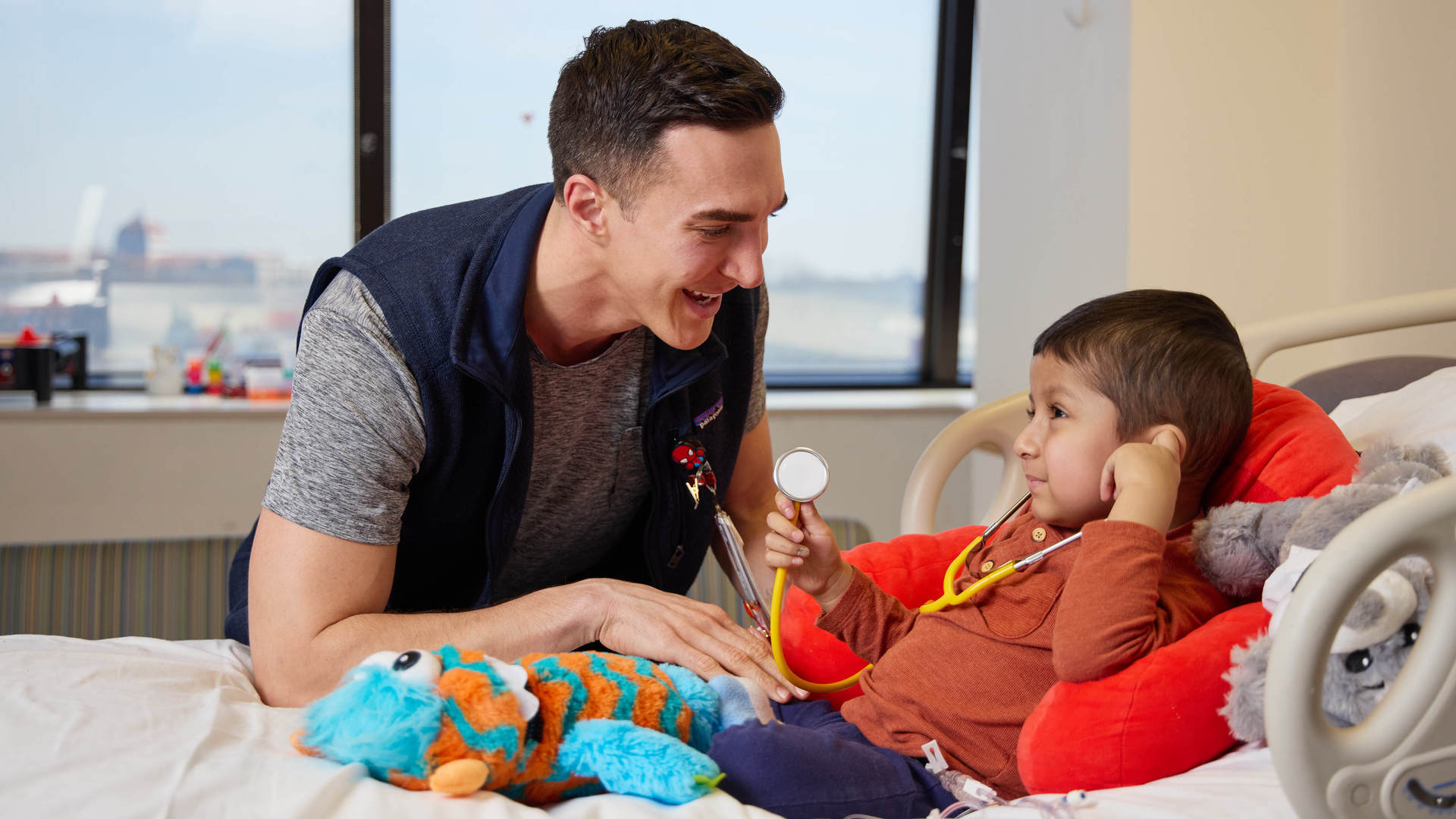
Oncology
The Oncology Program at Children's National is ranked one of the best cancer centers for children by U.S. News & World Report thanks to our high level of experience and expertise. Learn more about this program.
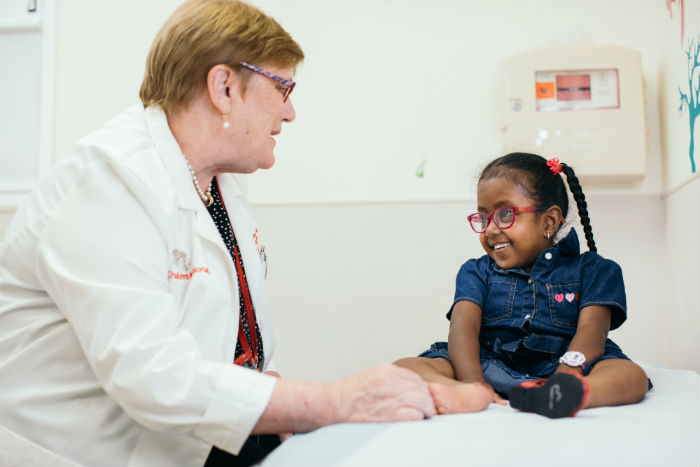
Bone Health Program
Orthopaedists at Children's National offer world-renowned expertise and life-changing care, including surgery, for children at high risk for bone fracture.
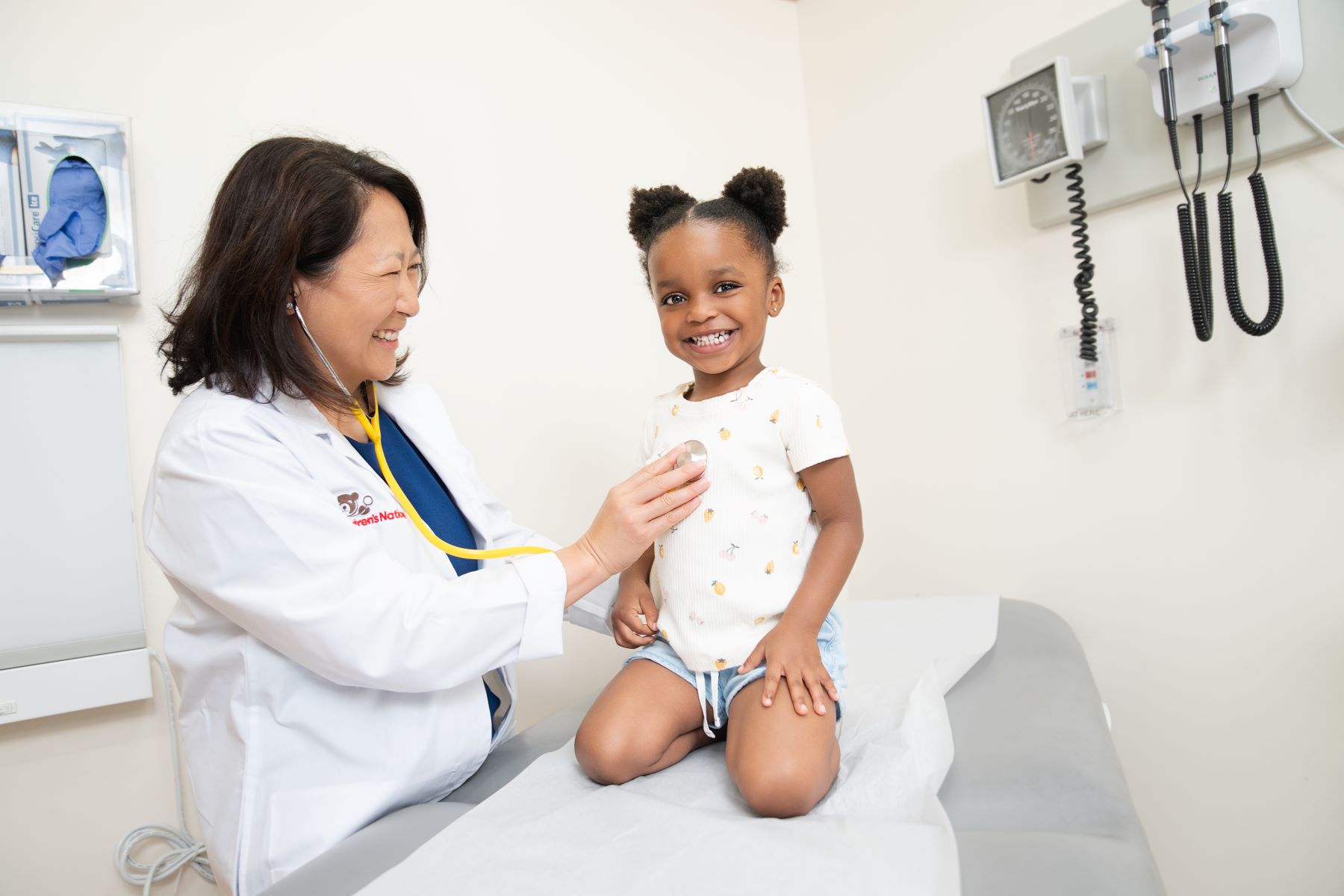
Solid Tumor Program
Our Solid Tumor Program has a dedicated team of sarcoma experts who specialize in the newest treatments and clinical trials.

Leukemia and Lymphoma Program
We deliver comprehensive care for all blood cancers including chemotherapy, bone marrow transplant and experimental therapeutics.

Histiocytosis Program
Experts in the Histiocytosis Program care for patients with a variety of rare conditions that happen when there are too many white blood cells in your child's blood.

Help Kids and Make a Difference
Invest in future cures to help children have brighter futures.






